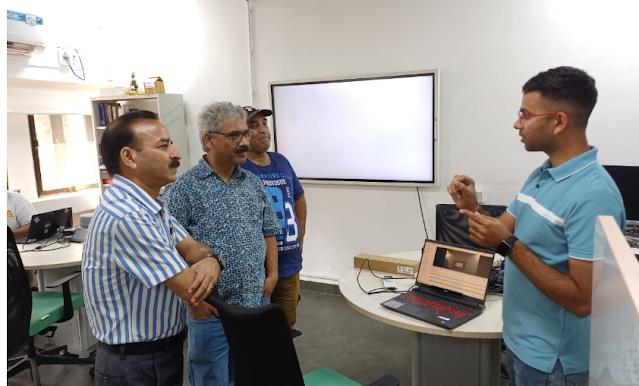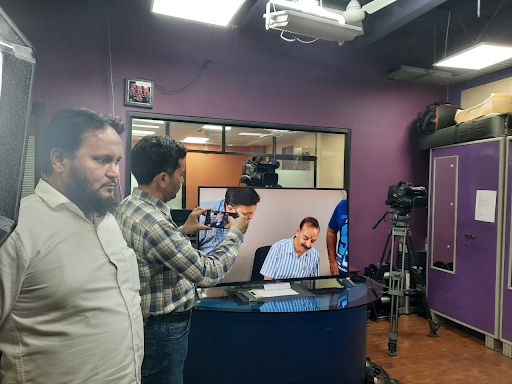Date: Wednesday, 15th January 2025
Session 1: Introduction to NLP and Word Embedding
The day began with a captivating lecture by Prof. Dr. Ramkumar in the ET Lab, where he introduced the fascinating world of Natural Language Processing (NLP). He meticulously explained the concept of word embedding and its significance in understanding language patterns. The session covered:
Neurons and Computational Learning:
Prof. Ramkumar elaborated on how artificial neurons mimic biological neurons.
He demonstrated how information is converted into numerical data for machines to process and how images are broken down into pixels.
Generative Models and Decoding Processes:
A detailed discussion on how generative models like ChatGPT work.
Insights into the decoding process that transforms raw data into human-understandable outputs.
BERT and Large Language Models (LLMs):
An introduction to BERT (Bidirectional Encoder Representations from Transformers) and its impact on language modeling.
Practical applications of LLMs in enhancing educational tools and systems.
This highly informative session provided an excellent foundation for understanding the intricacies of NLP and AI, leaving the participants eager to explore further. He introduced exemplars where these concepts are as applications. epsilon up and coren nlp.
Session 2: AI and ET Tools Demo
After the enlightening morning session, the focus shifted to AI tools in education. The demo was presented by Tushar and Debarshi, showcasing the practical use of emerging technologies like eye-trackers.
Highlights of the session included:
Eye Tracker in Education:
Demonstration of how eye-tracking technology can be employed to assess and analyze students' cognitive behaviors.
Discussions on its potential for providing insights into attention spans, learning patterns, and areas of improvement.
Interactive Discussions:
A lively Q&A session where experts such as Dr. K. N. Bijalwan, Ramesh Badoni, Rakesh Rawat, and Abhishek Dobhal raised pertinent issues regarding classroom applications of eye trackers.
Solutions and strategies for integrating this technology into the education system were explored collaboratively.
Session 3: SCERT Team Visit to NPTEL Studio
Post-lunch, the SCERT team visited the NPTEL Studio, where they were welcomed by Ms. Bharati and her team. The visit was focused on understanding the processes behind content creation and dissemination in NPTEL studio.
Key takeaways from this session:
Insights into Content Creation:
An overview of recording techniques and uploading processes for educational content on websites.
Discussion on the importance of quality production for impactful online learning materials.
Interaction with the NPTEL Team:
Valuable insights into how NPTEL operates as a premier platform for online education.
Strategies for leveraging NPTEL resources to enhance SCERT’s initiatives in Uttarakhand.
In nut shell, Day 3 was a rich blend of theoretical knowledge and practical insights into the application of AI and educational technologies. The sessions by Dr. Ramkumar, Tushar, and Debarshi expanded participants' understanding of NLP and AI tools, while the NPTEL Studio visit provided a hands-on experience in content creation and digital dissemination.
This multifaceted learning experience underscored the potential of AI and technology in revolutionizing education, setting a strong precedent for future endeavors in integrating innovation into teaching methodologies.









